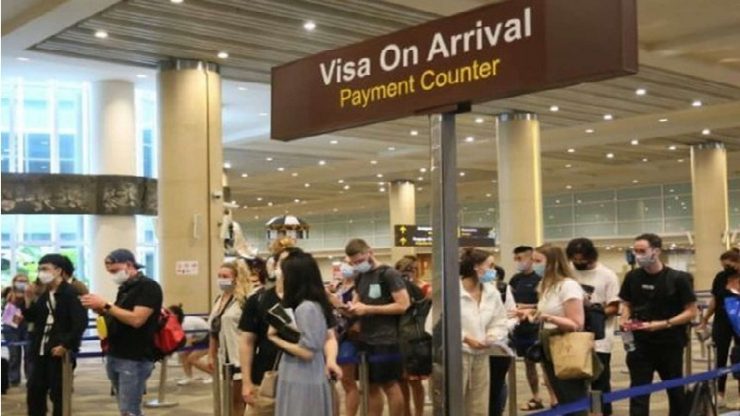THE INDONESIAN government through the Ministry of Law and Human Rights implemented a policy of granting visa-free visit facilities (BVK) only to 10 ASEAN member countries and Visa on Arrival (VoA) in 92 countries.
Director General of Immigration Silmy Karim explained that before the pandemic, there were 169 countries that were subject to BVK but changed when the COVID-19 virus hit Indonesia, namely the policy was not in effect.
“This is regulated in Regulation of the Minister of Law and Human Rights Number 34 of 2021 concerning Issuance of Immigration Visas and Stay Permits during the Management Period for the Spread of Corona Virus Disease 2019 and National Economic Recovery,” Silmy said in a statement in Jakarta recently.
Instead, according to him, the visa-free visit policy starting in 2021, foreigners can enter Indonesia with VoA. He said the Ministry of Law and Human Rights would continue to add VoA subject countries in stages and in 2023 add six countries.
“The 92 VoA subject countries are regulated in the Director General of Immigration Circular Letter Number IMI-0133.GR.01.01 of 2023. In Article 43 paragraph (2) of Law Number 6 of 2011 concerning Immigration it is stated that granting visa-free visas for certain countries must consider the principle reciprocal or reciprocal,” he said.
He explained that Article 6 of Presidential Regulation Number 21 of 2016 stated that the granting of visa-free visits could be temporarily suspended for consideration of state security or public health.
Silmy said that if the visa-free policy was re-enacted, the visit regulations must meet three criteria, namely the reciprocal aspect, providing benefits to Indonesia and paying attention to the security aspect.
He explained that the granting of a visa-free visit had an impact on aspects of national life, including the disturbance of public order and the spread of disease.
“Therefore, the number of beneficiaries of the policy was reaffirmed. The policy was based on the Decree of the Minister of Law and Human Rights of the Republic of Indonesia Number M.HH-GR.01.07 of 2023 on 7 June 2023. This decree became a kind of link from the old rules to the new rules regarding visas that coming out,” he said.
Silmy gave an example in 2019 or before the COVID-19 pandemic, the average number of Foreign Citizens (WNA) entering through Bali’s I Gusti Ngurai Rai International Airport was 16,268 people per day. And those who enter through Soekarno-Hatta International Airport are 5,945 people per day.
Meanwhile, in 2023, according to him, BVK will be applied to ASEAN countries and the Visa on Arrival policy, the average number per day of foreign nationals crossing through I Gusti Ngurah Rai International Airport is 12,917 people and through Soekarno-Hatta International Airport a total of 5,057 people.
“Foreigners entering Indonesia have gradually returned to normal with an increasing trend, although they no longer use the visa-free visit policy,” he said.
Silmy explained that currently the Directorate General of Immigration is updating the visa policy together with the plan to issue a Golden Visa.
According to him, the rules and policies issued were carried out to carry out the principle of a selective policy so that only quality foreigners would enter Indonesia. All visa applications can be done easily digitally via www.evisa.imigration.go.id without having to physically come to the Indonesian Missions (KBRI/KJRI) abroad.
“We refer to developed countries such as the UK, USA, UAE, Australia, Canada, Japan, Korea, Europe (Schengen) and others. Currently the Ministry of Law and Human Rights is also in communication with the Singapore government regarding the possibility that Singaporean permanent residents can enter Indonesia without requiring a visa as long as it is still valid,” Silmy remarked.
According to him, the Indonesian government is also preparing a shorter VoA policy with a seven-day stay permit for Batam, Bintan and Karimun, Riau Islands (Kepri) destinations to increase the number of passers to the area. [antaranews/photo special]
















